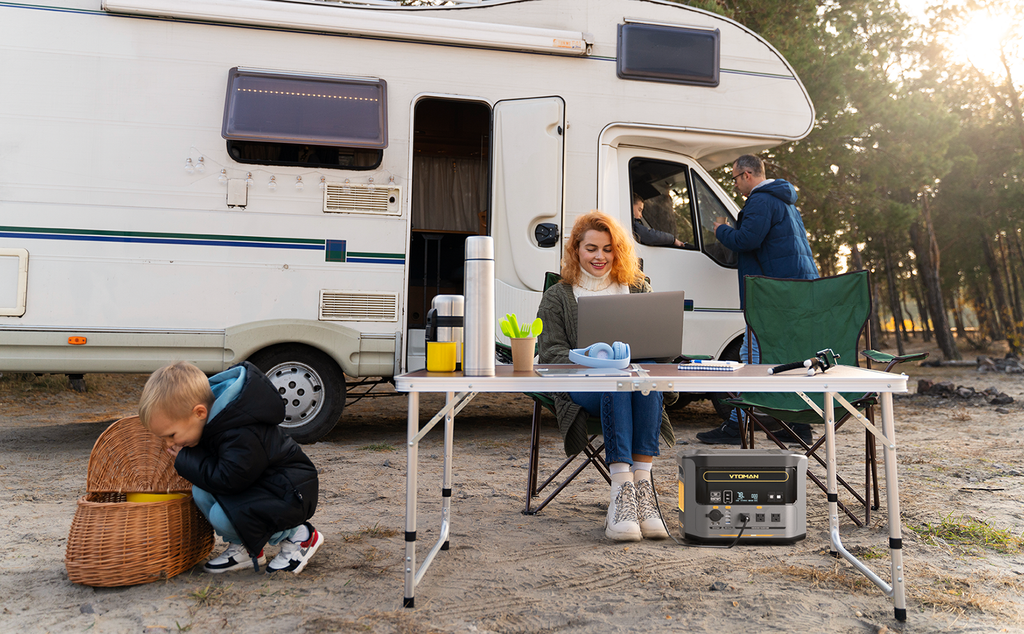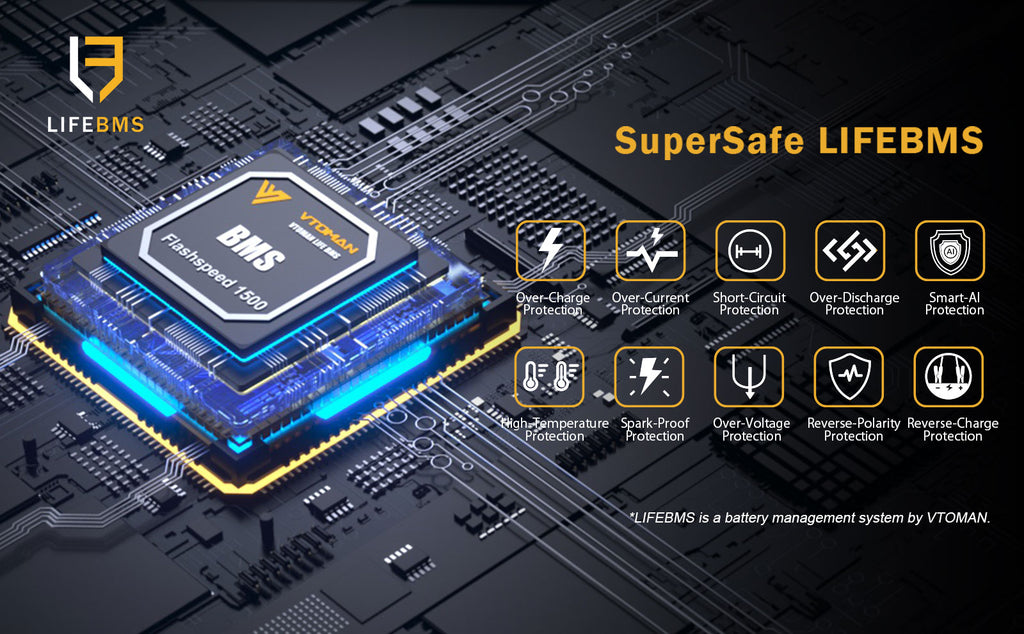"When life gives you lemons, let's not just make lemonade-let's power up a lemonade stand, lights, blender, and all, with no plug in sight!"
Locating the best RV generator in 2024 requires a discerning eye for detail, an understanding of your specific needs, and a finger on the pulse of technological advancements. In this article, we'll cut through the noise to highlight the most effective, efficient, and user-friendly RV generators available this year.
Things to Consider When Buying RV Generators
Size
When assessing the size of an RV generator, think beyond its physical footprint to consider its power output, measured in watts. This figure should correlate directly with your RV's power requirements. Start by calculating the total wattage of the appliances and devices you plan to use simultaneously. For instance, if your air conditioner, refrigerator, and a few smaller devices require a combined 2500 watts, a generator with at least a 3000-watt output is advisable to avoid power shortages. Conversely, selecting a generator with a significantly higher wattage than needed can lead to inefficient fuel use, as generators operate best under certain load conditions. Striking the right balance means your generator will provide power efficiently without waste.
Portability
The concept of portability encompasses more than the ability to move the generator easily; it speaks to the very nature of RV travel - freedom and flexibility. A generator that is awkward to move or requires multiple people to relocate can quickly become a burden. Features such as lightweight materials, compact design, ergonomic handles, and durable wheels matter significantly. These features should facilitate easy movement from storage to use sites, contributing to a seamless RV experience. Portable generators designed with the user in mind reflect an understanding that convenience in transportation is as important as the power they supply.

Fuel Consumption
Fuel efficiency is a paramount concern for long-distance travelers, directly impacting travel costs and environmental footprint. Highly efficient generators maximize the energy produced per gallon of fuel, extending operational times between refills and reducing the overall cost of electricity generation. The efficiency of a generator is influenced by factors such as the type of fuel it uses (with propane typically being more efficient than gasoline), the efficiency of the engine, and how well the generator's output matches your usage patterns. Opting for a generator with an eco-mode can also contribute to fuel efficiency, as it adjusts the engine speed to match the load, preventing unnecessary fuel use.
If you want a fuel-free generator, take an innovative solution: solar-powered generators, offering unparalleled fuel efficiency by harnessing renewable energy, thus eliminating fuel costs altogether. Their incorporation into RV travel not only enhances fuel efficiency but also significantly lowers the environmental impact of road trips.
Noise Level
Noise pollution can disrupt the peaceful ambiance of camping. Modern generators mitigate this issue through design improvements such as quieter engines, mufflers, and sound-dampening enclosures. Noise levels are quantified in decibels (dB), and a difference of just a few dB can significantly impact perceived loudness. For context, a generator operating at 60 dB is audible but not intrusive, akin to a conversation, whereas one at 70 dB is comparable to street traffic noise. Choosing a generator with a lower dB rating can help maintain the serenity of your surroundings, making it a critical factor for many campers. Guess which type of generator has the lowest noise level, virtually none? That's right, portable solar generators.
Budget
Budget considerations involve more than the upfront cost of a generator. A low initial price might be appealing, but factors like fuel efficiency, durability, and maintenance requirements can affect the total cost of ownership. For example, a slightly more expensive generator that offers superior fuel efficiency can lead to significant savings over time, offsetting the initial investment. Additionally, generators built with quality components may have longer lifespans and lower repair costs, contributing to better long-term value. Investing in a generator that meets your needs without exceeding them can provide the best balance between cost and functionality, ensuring you receive value for your investment without unnecessary expenditure.
Best RV Generator for 2024
The Jump 1500W/4752Wh 440W Solar Generator is undoubtedly the best RV generator for 2024. Boasting dual 1500W AC Pure Sine Wave outputs (with a peak of 3000W), it has the robust capacity to power a wide array of appliances and devices simultaneously. With a substantial 4754Wh capacity, it ensures your RV life remains uninterrupted, providing ample power for everything from small kitchen appliances to larger entertainment systems. The versatility is further enhanced by its 0/200W/400W solar input and 2*12 outputs, making it capable of charging multiple devices at once, ensuring you stay connected no matter where your journey takes you.
The Jump generator's incorporation of a LiFePO4 battery, notable for its 3100+ life cycles to 80%, marks a significant advancement in sustainable power solutions for RV enthusiasts. This generator is not just about providing power; it's about doing so in a way that's sustainable and efficient. The inclusion of a jump starter capable of starting a 9L gas or 7L diesel car adds a layer of practicality and peace of mind for travelers. The three input modes (wall, solar, and car charging) offer unparalleled flexibility in how you recharge the unit, ensuring you're never far from a power source. Additionally, its safety features and cost-effectiveness, combined with a 12W LED for added convenience, make it a reliable companion for any RV adventure.

Vtoman's commitment to blending efficiency with practicality shines through with the Jump 1500W/4752Wh 440W Solar Generator. It not only addresses the immediate needs of power and reliability for RV living but also leans into the future with its eco-friendly and sustainable energy solutions. For those ready to embrace the future of RV travel, Vtoman offers not just a product but a promise of innovation, reliability, and sustainability.
FAQs
- 1.What Size Generator Do You Need to Run My RV?
- For most RVs, a generator with a capacity of 3000 to 4000 watts will suffice to power the essential appliances, including an air conditioner, refrigerator, microwave, and some smaller devices simultaneously. However, for larger RVs with more appliances or if you plan to power multiple high-wattage devices at once, consider a generator with a capacity of up to 5500 watts.
- 2.What Size Generator Is Needed to Run a 30-amp RV?
- For a 30 amp RV, a generator with 3000 to 4000 watts is typically sufficient. This setup can handle most of the basic appliances and an air conditioning unit.
- 3.What Size Generator Is Needed to Run a 50-amp RV?
- For a 50 amp RV, which can accommodate more appliances and perhaps dual air conditioning units, a larger generator in the range of 5500 to 6500 watts is recommended. This ensures you can run multiple high-wattage appliances simultaneously without overloading the system.
- 4.Is It Okay To Run an RV Generator All Night?
- Running an RV generator all night is generally not advised due to noise disturbances, the risk of carbon monoxide poisoning, high fuel consumption, and increased wear and tear on the generator. Alternatives like using a battery bank or investing in a quality RV battery for overnight power and considering quieter, more efficient generators for extended use with proper safety measures like carbon monoxide detectors are recommended for a safer and more efficient power solution.
- 5.Is It Necessary to Add a Generator If My RV Already Has an In-Built Generator?
- If your RV comes equipped with a built-in generator, it's usually not necessary to purchase an additional generator. The integrated unit is typically designed to meet the power requirements of the RV's essential features, such as air conditioning, refrigeration, and lighting. However, if your power needs exceed the capacity of the built-in generator-perhaps due to the use of additional high-wattage appliances or a desire for redundancy in power sources-then considering an extra generator might be beneficial.












